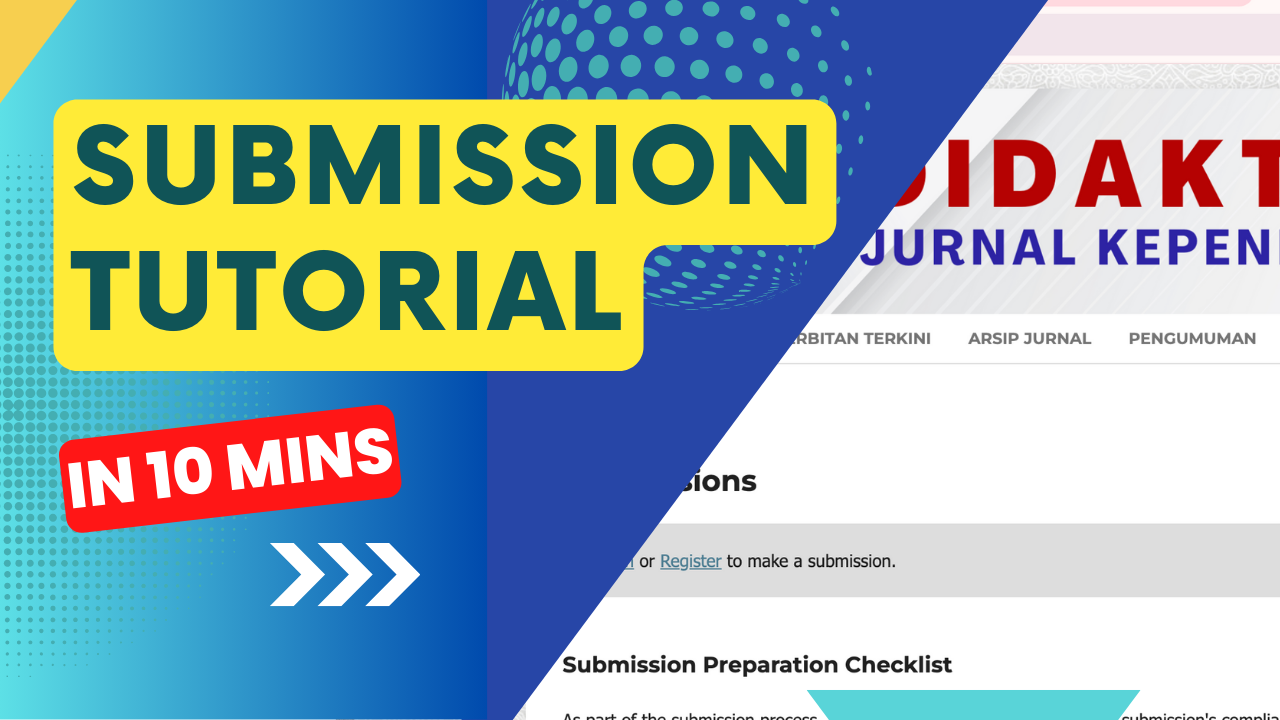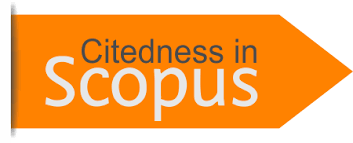Analysis of Religious Moderation Values in the Islamic Religious Education Textbook KMA 183 Of 2019
Abstract
This research aims to determine the moderation values in the 2019 PAI KMA 183 textbook. This research uses qualitative research. This research uses a type of library research. The subject of this research is PAI KMA 183 textbooks including books on Fiqh, Aqidah Akhlak, Al-Quran and History of Islamic Culture. The findings of this research are as follows: (1). The 2019 KMA Islamic Religious Education Textbook contains the value of religious moderation. Overall, the material contained in PAI textbooks is in accordance with the needs of students in accordance with the 2013 curriculum (2). The content of religious moderation values in the Islamic Religious Education teaching book KAM 183 of 2019 is generally conveyed throughout the entire chapter. The values of religious moderation that often appear in these textbooks are: national commitment, non-violence, accommodating local culture and tolerance
Metrics
References
Ainiyah, N. (2013). Character Formation Through Islamic Religious Education. Al-Ulum , 13 (1), 25–38.
Ahmadi, A. (2019). Religious moderation in Indonesia's diversity. Innovation-Journal of Religious Education and Training , 13 (2), 45–55.
Akmalia, R. (2023). Integration of Religious Moderation in Science Subjects in Class VI SDS Plus Anbata. Book Chapter of Proceedings Journey-Liaison Academia and Society , 81–90. Retrieved from https://www.j-las.lemkomindo.org/index.php/BCoPJ-LAS/article/view/645
Aziz, A. (2016). Strengthen state policies in dealing with radicalism in educational institutions. Hikmah: Journal of Islamic Studies , 12 (1), 29–58. https://doi.org/https://doi.org/10.19105/tjpi.v13i1.1757
Choirunnisak, C. (2017). The Concept of Wealth Management in Islam. Islamic Banking: Journal of Islamic Banking Thought and Development , 3 (1), 27–44. https://doi.org/10.36908/isbank.v3i1.74
Faruq, U. Al, & Noviani, D. (2021). Religious moderation education as a shield for radicalism in educational institutions. TAUJIH: Journal of Islamic Education , 3 (1), 59–77. https://doi.org/https://doi.org/10.53649/taujih.v3i1.91
Faith, MF (2019). Islamic Religious Education: Definition, Objectives, Basics and Functions. Journal of Islamic Religious Education , 17 (2).
Isnawan, F. (2018). Program to deradicalize radicalism and terrorism through the noble values of Pancasila. FIKRI: Journal of Religious, Social and Cultural Studies , 3 (1), 1–28. https://doi.org/https://doi.org/10.25217/jf.v3i1.275
Juhro, S. (2015). Radicalism in the Perspective of the Qur'an (Tafsir Al-Azhar Study) . Institute of Al Quran Sciences (IIQ) Jakarta.
Khoiri, A. (2019). Efforts of the Principal and Islamic Religious Education Teachers to Prevent Drug Abuse at SMA PAB 4 Sampali Deli Serdang. Ansiru PAI Journal , 3 (1), 73–86. https://doi.org/http://repositorio.unan.edu.ni/2986/1/5624.pdf
Mansir, F. (2021). The Role of Islamic Religious Education Teachers in Preventing Student Violence in Madrasas. Intiqad: Journal of Islamic Religion and Education , 13 (2), 186–203. https://doi.org/10.30596/intiqad.v13i2.8164
Moleong, L. J. (2016). Qualitative Research Methodology . Bandung: Rosdakarya Youth.
Nisa, MK, Yani, A., Andika, A., Yunus, EM, & Rahman, Y. (2021). Religious Moderation: Foundations of Moderation in the Traditions of Various Religions and Implementation in the Era of Digital Disruption. Journal of Religion Research , 1 (3), 79–96.
Nurdin, F. (2021). Religious Moderation according to the Koran and Hadith. Al-Mu Ashirah Scientific Journal: Multi-Perspective Al-Qur'an and Al-Hadith Study Media , 18 (1), 59–70. https://doi.org/http://dx.doi.org/10.22373/jim.v18i1.10525
Nurhidayati, T. (2015). PAI learning innovation based on multiple intelligences. Journal of Islamic Education Studies , 3 (1), 23–56. https://doi.org/https://doi.org/10.15642/jpai.2015.3.1.23-56
PPIM. (2017). Reducing Radicalism Requires Inclusive Religious Education . Jakarta: PPIM UIN Jakarta.
Purwanto, E. (2019). Development of Teaching Materials Based on Project Based Learning for Pai Stai Al-Hikmah Tanjung Balai Learning Media Courses. EDU-RILIGIA: Journal of Islamic and Religious Education , 3 (3).
Qodir, Z. (2016). Youth, intolerance and religious radicalism. Journal of Youth Studies , 5 (1), 429–445. https://doi.org/https://doi.org/10.22146/studipemudaugm.37127
Ratih, A. (2022). Development of Textbooks for Teaching Material Development Courses. BIOEDUSAINS: Journal of Biology and Science Education , 5 (1), 17–23. https://doi.org/https://doi.org/10.31539/bioedusains.v5i1.3383
Saraswati, R., & Hadiyono, V. (2020). Prevention of Bullying in Educational Institutions: Legal Norms and Behavior Change Approach. Journal of Law, Politics and Power (JHPK) , 1 (1), 1–12.
Copyright (c) 2024 Mashabi M. Noor Ritonga, Hasan Asari, Zaini Dahlan

This work is licensed under a Creative Commons Attribution 4.0 International License.
Dengan mengirimkan naskah artikel, berarti penulis setuju dengan segala kebijakan yang ditetapkan oleh jurnal dan penerbit.
Penulis menyatakan bahwa:
- kebijakan ini telah diketahui dan disetujui bersama oleh semua penulis;
- naskah artikel belum dipublikasikan secara resmi sebelumnya di media ber-ISSN atau ber-ISBN yang terdaftar, kecuali dalam bentuk abstrak atau sebagai bagian dari materi kuliah, atau skripsi/tesis/disertasi yang tidak diterbitkan;
- naskah tidak sedang dalam proses editorial dan dipertimbangkan untuk publikasi di tempat lain;
- publikasi naskah ini telah disetujui oleh semua penulis, institusi afiliasi penulis, otoritas yang bertanggung jawab, dan lembaga di mana kegiatan telah dilakukan;
- naskah berisi materi yang aman dari pelanggaran hak cipta;
Perjanjian Hak Cipta dan Lisensi
- Penulis memiliki hak cipta dan hak kepemilikan lainnya yang terkait dengan artikel.
- Penulis memiliki hak dan diizinkan untuk menggunakan substansi artikel untuk karya-karya penulis berikutnya, termasuk untuk keperluan bahan/materi kuliah dan buku.
- Penulis menyerahkan hak publikasi pertama kepada jurnal dengan di bawah Lisensi Creative Commons (CC BY 4.0).
Pernyataan Lisensi CC BY 4.0
Anda diperbolehkan:
- Berbagi — menyalin dan menyebarluaskan kembali materi ini dalam bentuk atau format apapun;
- Adaptasi — menggubah, mengubah, dan membuat turunan dari materi ini untuk kepentingan apapun, termasuk kepentingan komersial.
Pemberi lisensi tidak dapat mencabut ketentuan di atas sepanjang Anda mematuhi ketentuan lisensi berikut ini.
- Atribusi — Anda harus mencantumkan nama yang sesuai, mencantumkan tautan terhadap lisensi, dan menyatakan bahwa telah ada perubahan yang dilakukan. Anda dapat melakukan hal ini dengan cara yang sesuai, namun tidak mengisyaratkan bahwa pemberi lisensi mendukung Anda atau penggunaan Anda.
- Tidak ada pembatasan tambahan — Anda tidak dapat menggunakan ketentuan hukum atau sarana kontrol teknologi yang secara hukum membatasi orang lain untuk melakukan hal-hal yang diizinkan lisensi ini.






.png)








